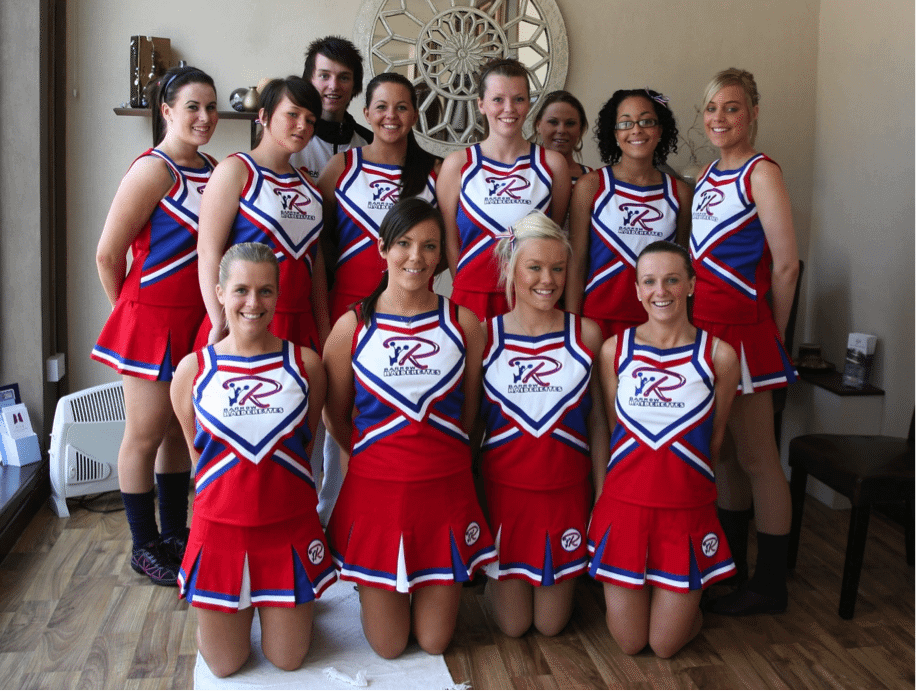The Supreme Court has agreed to hear a case that may provide a bright line rule for one of the hardest issues in copyright law today: whether clothing designs (such as stripes on a uniform) fall under the protection of copyright law. The parties in this case are two cheerleading uniform companies fighting over where the functional aspect of a cheerleading uniform ends and the creative portion begins.
The Parties
Star Athletica is a young cheerleading uniform company looking to break through on the main stage. Varsity Brands is one of the industry leaders for designing and manufacturing cheerleading uniforms. The dispute is over whether arrangements of stripes, zigzags, and color blocking are copyrightable or if they’re merely a utilitarian aspect of the uniforms. At trial the District Court found that the two aspects merged together, so design aspects of the uniform were not subject to copyright laws. However, the 6th Circuit Court of Appeals reversed that finding and held that certain design elements could stand independently from the functional aspect of the uniform, and therefore, qualified as copyrightable material.
Copyright and Clothing
The purpose of copyright law is to protect creators of original works of authorship fixed in any tangible medium of expression, whether published or unpublished. Authorship is used broadly to encompass works such as music, choreography, visual arts, sound recordings, computer programs, and architecture. Copyright provides for certain exclusive rights to the creator, most notably to reproduce the copyrighted material, for the author’s lifetime plus 70 years. The protection copyrights provide is balanced by not wanting to stifle innovation or prevent creative people from creating new works of art or design.
When it comes to clothing, copyright law doesn’t offer a lot of protections. The main rule allowing protection states that “features that can be identified separately from, and are capable of existing independently of, the utilitarian aspects of clothing can be copyrighted.” This “conceptual separability” doctrine is currently the benchmark test, and leaves wide gray areas around when utility ends and design begins. This doctrine states that copyright protects “pictorial, graphic, or sculptural features of a design of a useful article even if those features cannot be removed physically from the useful article, as long as they are conceptually separable from the utilitarian aspects of the article.” In other words, even if you can’t peel a picture off a t-shirt, the “useful article” (the shirt) can’t be copyrighted, but the picture itself can be protected by copyright.
The U.S. Copyright Office protects fabric prints and designs on articles of clothing, and the Circuit Court used that test when they held that Varsity Brands’ design was protected. The Copyright Office had consistently found that arrangements of designs on cheerleader uniforms could be separated from the utility of the uniform and were therefore copyrightable. The court held that the designs did not enhance functionality, and when the stripes were removed one could still see that it was a cheerleading uniform by the shape and style of the uniform. The dissenting judge chimed in saying that a plain white uniform, while potentially appropriate for other sports, does not work for a member of a cheerleading squad.
Implications
If the Supreme Court affirms the Circuit Court’s holding in favor of Varsity Brands, it could lead to widespread protection of aspects of clothing not previously protected. Some fear that this could allow large fashion corporations to have so much power and protection that no one new will be able to break into the industry. Pocket design, sleeve style, and necklines are not currently eligible for copyright, but this case could have major repercussions in that arena because many cheerleading uniform designs have necklines that are altered or defined by the stripes. There are additional concerns for people who are part of the fast-growing cosplay population: would they be able to dress like their favorite superhero if the Supreme Court affirms this holding?
There are many questions that will be asked leading up to the Supreme Court’s decision. This case could result in a clear and consistent rule for how copyright law treats clothing and uniforms. For more information about the copyright law contact Revision Legal’s team of experienced copyright lawyers through the form on this page or call 855-473-8474.
Image courtesy of Flickr user Kris




